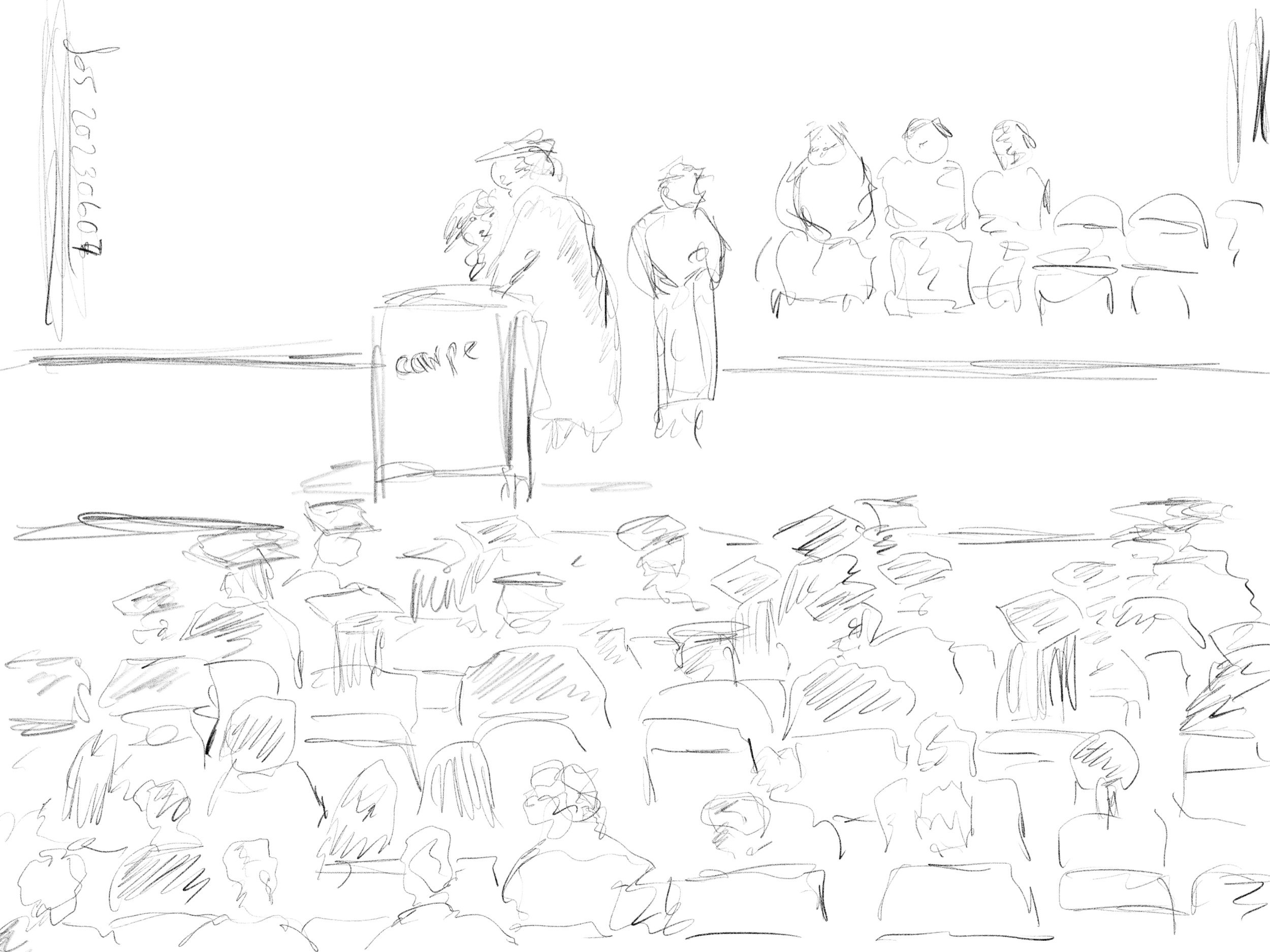Two thoughts on "educational content" and screen usage.
Read, write, draw.
I’ve been thinking a lot about the value of learning how to read, write, and/or draw early and their relationships to technology and boredom. Maybe interact with paper is a better catchall. :)
I say this without being a technophobe; as someone who loves film & television in balance, and who is is not raising a Luddite household. I love what technology can do for us when we leash it firmly and train it well. Specifically, what I mean is this: how do we, as parents, educators, and society, help our children learn to
not immediately default
to a phone or tablet every time they have nothing else to do?
I am not pointing fingers; every parent needs to do what they need to do at a particular point. I’ve certainly used these things before as distractions. But to me, there is also a key difference between something being an occasional distraction and becoming a habit.
How do we help our children not develop a habit of picking up a phone every time they have a free thirty seconds to do something with?
There are three things I think are important:
Modeling.
Showing them what we mean with our own actions and not twiddling through a screen every time we have a free minute. What do we do with our precious free seconds and minutes? I’ve got a ton of ideas, and again, of course I’m a hypocrite too.Learn to converse in person.
Help them learn to carry on interesting dialog with others that is a two-way, or multi-part conversation. The joy and value of carrying on stimulating and interesting dialogs with others is incalculable. And it’s something that can be learned, practiced, and modeled.Teach the value of doodling and having emergency print supplies at all times.
I grew up with a sketchpad in hand, especially during church or other meetings. It helped me focus. The original fidget spinner, only I had some mediocre drawings, random movie lists, and story ideas sprawled across various pages at the end. Make sure they have one of those three, or all available: something to read and something to write, draw, or doodle.
Boredom is an incredible motivator. So don’t leap to their rescue every time they hit that point. Let them figure things out, and give them a small and minimal number of resources to figure their way out of a Möbius boredom loop.
Anyway.
lay the bait
I’m getting a little weary of the dog whistle of “educational content.” In other words, the magic inclusion of these words to apps, software, games, television programs, films, and any digital content is often a salve for helping many parents feel better about the time their child is spending in front of a screen. “It’s educational.”
I love Sesame Street and think it’s a great educational program. It doesn’t mean that spending six hours a day of watching Sesame Street is educational. Just like “organic” on food packaging a decade ago, these magic words appear, with little-to-no oversight and make us feel better about the choices we make without being demonstrably effective or accurate.
We could fill our days watching or playing “educational content.” What gets lost sometimes is the importance of doing two things as a parent:
Forget trying to cover all the bases of educational content if you’re a parent. Say no to parental FOMO* - that terror that somehow you’re denying your child an opportunity or advantage if you don’t provide access to all the greatest educational resources. We use a supplementary math resource called IXL that many of you probably are familiar with. It’s a great resource. Better than some, probably not as good as some others. But it works for us. I am not worried about trying to find every great online math resource. We still drill our kids on time tables regularly. In person, orally. Quick, what is 14 times 13?! Points are: a) the basics are still the same and you can practice those foundations with them easily without batteries needed, and b) pick a good resource and go with it. IXL, Khan, Reflex. Or Sesame Street, Arthur, Wild Kratts on PBS Kids. We’re flooded with choices. Good choices. Doesn’t mean we have to choose all of them.
Balance the digital with the hands-on, the print, and the outdoors. The digital, online, virtual, screen world is not evil. It’s a part of our lives and instead of having a co-dependent relationship with these things and telling our kids how bad they are, while using them ourselves every opportunity we get, we can show them how useful and enjoyable technology can be - especially when it’s balanced out with a healthy dose of physical activity, reading, hands-on recreation, conversation, music making, and outdoor pursuits.
Technology is not evil. And if you think it is, well, perhaps this is a good weekend to sit down and watch the entire Terminator franchise with them. #cyberdyne
*FOMO = fear of missing out
Something I love about age 9
The way kids volunteer to answer questions without embarrassment.
What is 14 x 9?
a teacher asks,
and arms shoot up all over.
Who can tell me about the Magna Carta?
a teacher asks,
and arms shoot up all over.
What is the building block of cellular biology?
a teacher asks,
and arms shoot up all over.
Love it. May we all learn from that.












